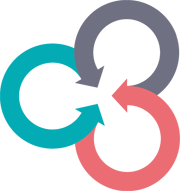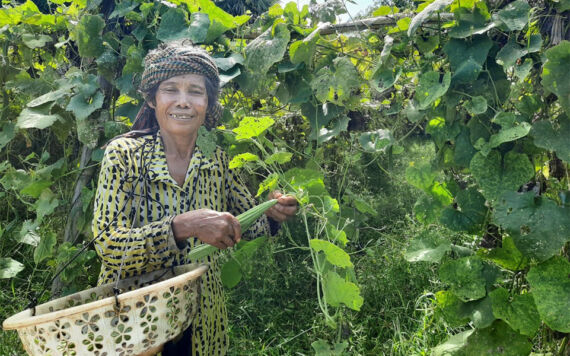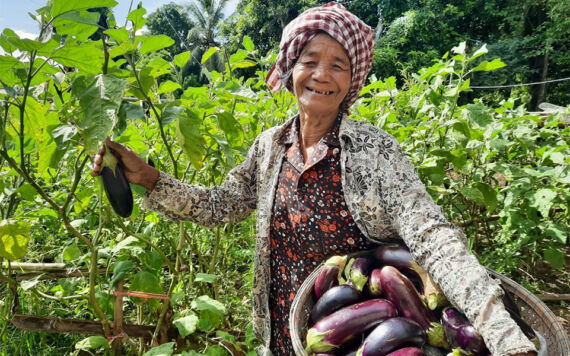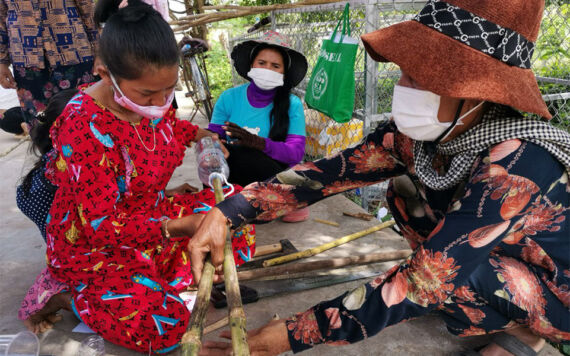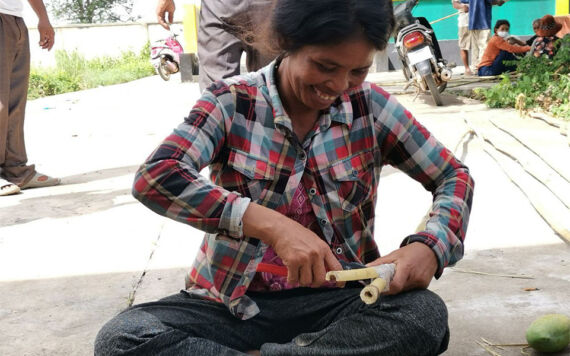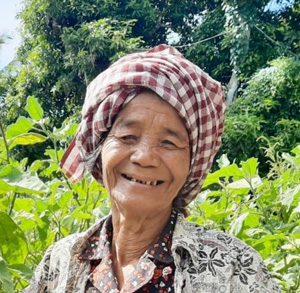| Project Name | Building Back Better- transformative rural action for women with disabilities |
| Commisioned by | German Federal Ministry for Economic Cooperation and Development (BMZ) |
| Country | Cambodia |
| Implementing Organisation | People’s Action for Inclusive Development (PAfID) formerly known as Light for the World Cambodia – pafid.org |
| Duration | November 2021 – May 2023 |
The Challenge
Harsh Conditions: Cambodia’s violent history and the landmine-laden countryside alongside a poor health care system and high poverty rate impaired the development of the whole population but especially the opportunities of people with disabilities. Nearly 80 % of Cambodia’s population lives in rural areas and is mostly engaged in subsistence farming.
A Challenging Intersection: Women with disabilities who live in rural areas experience a triple marginalization and discrimination due to gender, disability, and poverty. The effects of this marginalization have become more severe due to the impacts of the COVID-19 pandemic which bears the risk of leaving people with disabilities behind on the agenda of recovery and development. A study from the UK Department for International Development (DFID, now FCDO) shows that most people with disabilities in Cambodia were among the poorest and faced more hurdles to escape poverty, even before the COVID-19 pandemic. According to a study on the impacts of disabilities published in the Journal of Economic Behavior and Organization (2020), disability is likely to trigger a vicious circle, leading to reduced work and earnings as well as a limited accumulation of both social capital and productive assets.
The Objective
The project aims at strengthening the resilience mechanisms of rural farmers with disabilities, improving their livelihoods, and cushioning the negative consequences of the Covid-19 pandemic. The project empowers farmers with disabilities (particularly women) by building skills, capacities, and confidence to engage in agricultural production. Moreover, the development of assistive farming technology to improve livelihoods and strengthen resilience mechanisms are at the core of the project.
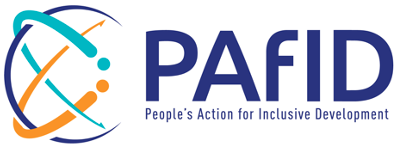
About PAiFD
People’s Action for Inclusive Development (PAfID), formerly known as Light for the World- Cambodia, is an nongovernmental organisation working to promote social inclusion. The vision of PAfID is an inclusive society where opportunities to participate in the cultural, social, and economic environment are open for all. Therefore, PAiFD contributes to a world in which all persons live in dignity and fully exercise their rights and reach their potential.
Website: pafid.org
The Target Group
The project focuses on farmers with disabilities (of which 75 % are women) – including those with hearing, visual and intellectual impairments – from rural areas in the three provinces Pursat, Battambang and Siem Reap in Cambodia. The project will furthermore benefit provincial trainers who receive a master training on creative capacity building (CCB). All participants are supposed to spread their knowledge in their communities and self-help groups, hence on the long run, the project is expected to unfold a positive impact on the lives of many more farmers in the area. This positive impact will be amplified by the collaboration with three local organizations, government bodies and international institutions to raise awareness.
The Approach
Multi-Level Approach: The project applies a multi-stakeholder approach, making use of existing resources and capacities to anchor the project on both the community and political level. To assure that women with disabilities in rural areas have access to agricultural production and are enabled to improve their livelihoods, the project engages relevant stakeholders throughout the whole planning and implementation phase. Besides local actors, the project will approach governmental institutions, international organisations, and engineering institutions.
Comprehensive Support: Capacity building is offered to women with disabilities. Applying a human-centered creative capacity building approach, participants jointly identify challenges encountered in their daily lives and develop coping strategies. Moreover, the issue of discrimination against female farmers with disabilities and perspectives of inclusive agriculture will be brought to political awareness through political advocacy.
Achieved Results
- 83 farmers completed the workshops focusing on creative capacity building
- 70 farmers reported an increase in agricultural livelihoods
- 4 prototypes which help coping with the identified challenges were designed, created, and evaluated
- 53 stakeholders (policy makers, private sector actors and development agencies) reported an increased disability inclusion knowledge
I am proud because I am now included in capacity development programs like people without disabilities. I am very satisfied with the workshops on creative capacity building and pre-design which help me and other people with disabilities to be able to live more independent and generate more incomes when our final assistive tools are produced I can better access to relevant farming activities
Mrs. Um Sambo
Beneficiary

